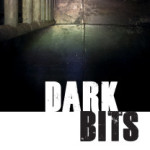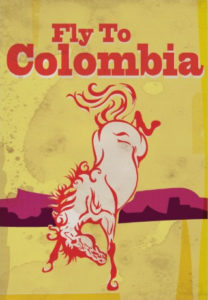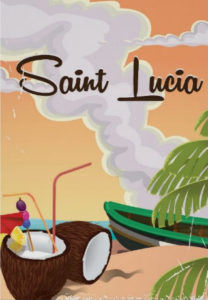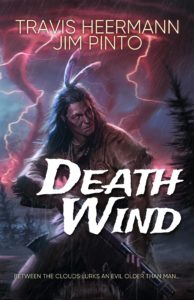The Story:
55 wpm
Khalid I love you that’s the most important thing whatever happens remember I LOVE YOU. Not much time, I don’t know who the hijackers are or what they want…Khalid I would rather tell you you’d be proud of me for my typing test today. I can type 55 words per minute with no errors at
The Article:
 I think my experience as a short story writer is probably a common one in that over time, stories tend to sort themselves into three categories.
I think my experience as a short story writer is probably a common one in that over time, stories tend to sort themselves into three categories.
You’ve got your Bulls-Eyes. You see a call for submissions, you have a great idea, you write it and it works, you send it in, and the editors love it and snap it up. One and done. This was the case with my flash fiction “The Long Haul,” which got published in the Dark Bits anthology.
You’ve got your Wanderers. Sometimes these stories get written because you want to tell them, and not in response to a particular call. Other times, you write them for a specific call and they don’t get accepted. Either way, you’ve now found yourself with a “homeless” story that needs to find a place to belong. Sometimes you’ll get lucky and you’ll stumble across a call for submissions that suits what you’ve got. Or maybe this story will find a home in a magazine or anthology that accepts stories on a wide variety of subject matter and themes. You’ll rework and rewrite and send it out again. Sometimes you’ll have the delightful experience of watching a story that’s been rejected several times finally find a home…sometimes even in a market that pays double, or triple, that of the markets that rejected it. The time I invested in revising that story definitely paid off.
And you’ve got your One-Winged Birds. These stories have flaws that keep causing them to be sent back to you time and time again. I’ve got a few of these now which are starting to feel like time sinks, and I think that I’m better served writing something new than spending any more time rewriting old material. There’s always a balance to be struck between rewrites to make something better, and accepting that a certain concept is just not working, and eating up time better spent creating something new.
One of my one-winged birds is a political story which, I’ve been told, is too much of the characters discussing/debating/arguing and not enough action. I think the debate is exciting, but I’m apparently the only one.
55 wpm is another.
I’ve sent out several versions of “WPM” (word number varying depending on story length…) and gotten some very mixed feedback. I think this is the only story where I’ve ever been told that the stakes are “too high” and I should “write smaller”–from a reader who found the hijacking scenario too over-the-top to be able to suspend disbelief. (A vast majority of critiques suggest that authors make the stakes higher!) Other feedback suggested that the stakes were great –tense, urgent, exciting–but the main character’s responses too banal, surely? All I could think in response to that was my own responses to emergency situations–including an in-flight emergency as pilot in command–were, after the fact, hilariously banal. This might be the reason for the markets who told me they found the story unintentionally humorous and rejected it on those grounds.
So, with some of my critique suggesting that I choose a less urgent scenario, and other critique advising me to make the main character’s response more “serious”, I’ve decided to call endex on any more revisions for this story. In a less urgent scenario, I couldn’t write the main character’s stream-of-consciousness reply, transcribing her thoughts as she thinks them, no matter how banal–because in a less urgent scenario, the main character would have time to consider her words and edit her typing. And a more “serious” response is completely at odds with the kind of things that crossed my mind in actual emergencies when I’d already done all I could do and was waiting to see if it would be enough.
The lessons I’ve taken away from this one are:
- I don’t think I want to write another hijacking story (except possibly as part of a longer thriller in which the hijacking would be a plot point and not the entire focus of the story). This tight focus on the hijacking event seems to be a very hard sell, partly because there’s a tricky line at which extreme emotion becomes over-the-top.
- I find this story frustrating because the stream-of-consciousness (banality and all) was inspired by my own mental response to an emergency situation. I wondered whether some of the people giving critique had ever been in a life-or-death emergency situation. But…they’re the editors and I’m not, so I can’t exactly argue with them that they’re wrong (Don’t argue with editors. It makes you look very unprofessional, and you won’t convince them to change their minds and accept your story. But it can definitely be galling.)
- This story’s based on a conceit: the protagonist’s typing speed precisely limits how many words she’s able to send to her partner before impact. Being “cute and clever” can backfire. Character and voice are far more important than showing off how clever you are; and there are some readers (and editors) who don’t like “clever twists”, no matter how well you do character and voice. I still like the story’s conceit, but I also like puns and stuff 😉 Going forward, I plan to focus on character and voice rather than thinking up new “sly twists” to base stories on.
About Mary:









